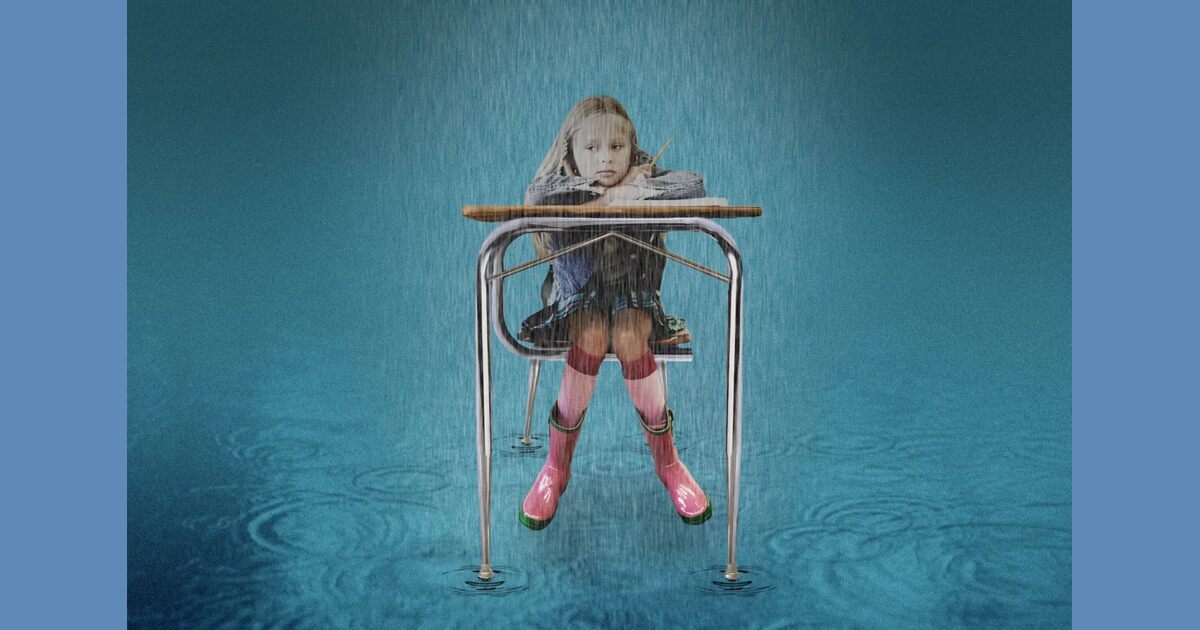Join us as we delve into the often-overlooked emotional impact of extreme weather events on children. Discover the challenges they face when returning to school amidst trauma and uncertainty.
In recent months, numerous extreme weather events, such as floods, hurricanes, and wildfires, have not only devastated communities but also disrupted schools across the United States. This disruption has significant consequences for children mental health as they grapple with the trauma of natural disasters.
Recent School Disruptions: Impact Of Extreme Weather Events On Children
Several incidents in various regions have led to school closures:
- Ohio Floods: Northeast Ohio faced school closures in late August due to heavy winds and rain, resulting in electrical issues and power outages.
- Hurricane Idalia: Flooding and safety concerns in the Tampa Bay area led to school closures, while South Carolina schools resorted to early closures and remote learning.
- Train Derailment in Ohio: A train carrying hazardous materials derailed in East Palestine, Ohio, causing evacuations and school absences due to safety and air quality concerns.
- Maui Wildfires: The devastating wildfires in Lahaina, Hawaii, not only claimed lives but also damaged or destroyed schools, leaving families displaced and children traumatized.
Expert Insights on School Disruptions
School disruptions, initially a safety precaution, can have far-reaching effects:
- Loss of Routine and Safety: Children require routine and a sense of safety, which school disruptions disrupt. The absence of structure may lead to aimlessness and emotional challenges.
- Social Setbacks: Schools are essential social hubs where children learn to bond and connect. Prolonged disruptions hamper socialization and hinder the development of vital social skills.
Complexities of Returning to School
Returning to school post-extreme weather events can be fraught with challenges:
- Anxiety Triggers: While school offers a sense of normalcy, it can also trigger fear, especially if children fear separation from their parents or reminders of the disaster.
- Grief and Disorientation: Students grapple with grief stemming from personal losses and disorientation caused by the upheaval of their familiar environment.
- Inability to Fully Engage: Basic needs for safety and shelter must be met before children can focus on learning. Failure to address these needs hampers their ability to engage in school activities.
How Parents Can Help?
Parents play a vital role in mitigating the mental health effects:
- Interactive Support: Spend quality time with children, engage in activities, and encourage them to express their feelings through art and play.
- Model Coping Behaviors: Demonstrate healthy coping mechanisms during stressful times as children tend to emulate their parents’ behavior.
- Proactive Preparedness: Discuss safety measures, safety plans, and inform children about future weather-related events to empower them.
- Compassion and Understanding: Be patient with physical problems like bedwetting, which can be linked to anxiety, and provide care and attention.
- Establish New Routines: Create fresh routines to provide structure and a sense of purpose, particularly when schools remain closed.
- Seek Support: Leverage professional counseling, community activities, and shared resources to build a support network.
Children’s psychological well-being in the aftermath of extreme weather events is a pressing concern, requiring collective efforts from parents, educators, and communities to provide the necessary support.








Leave a Reply
You must be logged in to post a comment.